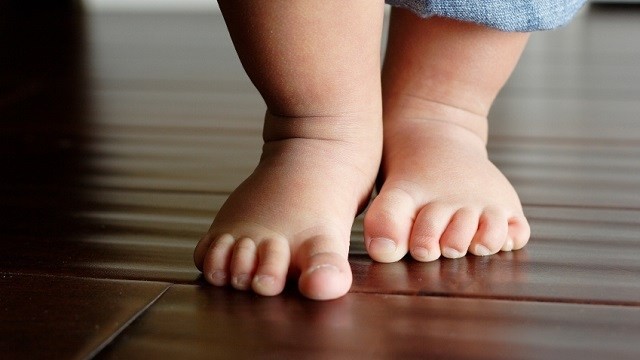Why it is important to crawl

Infants discover the world around them through crawling and learn about basic concepts related to space, as they increase limb coordination and "proprioception" which indicates the ability to perceive the position of their body in space and the state of contraction of their muscles. Through this activity, in fact, children learn to relate to their sensory abilities, recognize their knees and their hands and gradually develop their muscles.
It is thanks to the correct crawling that children will learn to walk correctly and stand in balance and in the most correct way.
Initially, each child crawls in its own way. It is therefore up to the parent to teach the child the best way to do it. Often newborns roll on the floor, crawl crawling, or only on one side or backwards, but the best way to crawl is definitely the "traditional", or with hands and knees resting on the ground that move harmoniously to allow the newborn to advance.
In short, crawling is a great step forward for your child, both physically and neurologically. By crawling, the child prepares to develop more complex skills, including reading and writing.
The right way to crawl
Once the newborn starts to sit without leaning it is practically ready to crawl. When sitting, try to put your hands forward, bend their knees and let them be pushed backwards with their feet. Going crawling, the child thus strengthens the connections between the two cerebral hemispheres and creates "lines" of information fundamental for the maturation of its different cognitive functions.
It also develops the so-called "crusader pattern", i.e. the neurological function that makes it possible to move the body in an organized and balanced human body. This allows the right arm to move synchronously to the left leg and the left arm to the right leg.
The times
Infants normally start crawling around the eighth month, but it can also happen around the fifth/sixth month if they are very early. Sometimes, however, a difficulty in coordination can be a symptom of a psychomotor disorder or a delay in learning: if you look at it when it is nearing its first birthday you realize that the child not only does not crawl, but does not make other movements such as rolling, crawling and not moving the limbs in a coordinated way, you may need a paediatric examination to rule out any problems. However, the situation will change if the newborn baby is born prematurely, which may cause the progress and stages of development to slip over time.
Lucia Franco
How to Teach Your Baby Your First Steps
Autonomy is almost certainly the first great achievement of a baby. But like all great achievements to achieve it, two elements are fundamental: a lot of patience and determination. Initially, our little one starts to move on..
ReadWhat do newborns think?
When the child is born, his external world is also born with him, as if his person and the reality with which he comes into contact with were one and then they come to distinguish themselves slowly during..
Read

